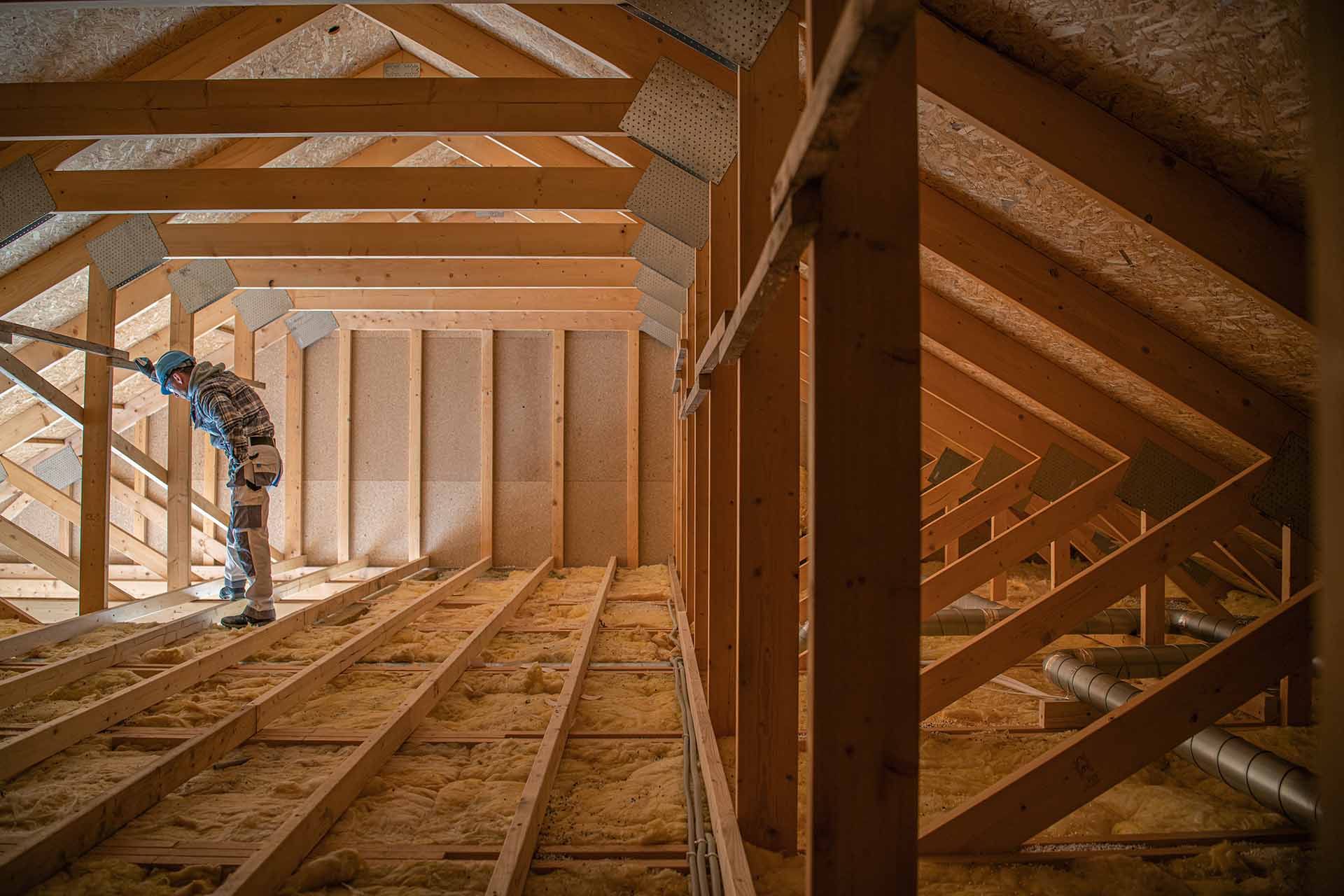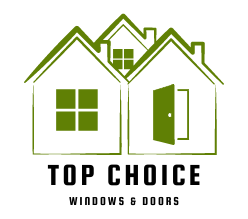Indoor air quality is an important part of maintaining a healthy living environment. Poor indoor air quality can cause a variety of health concerns, such as respiratory disorders, allergies, and asthma. While many things can influence indoor air quality, one that is sometimes disregarded is attic insulation. Proper attic insulation may make a big difference in the air you breathe inside your house. Attic insulation helps control temperature, reduce humidity, and minimise insect infestations, all of which can contribute to better indoor air quality. Furthermore, insulation may function as a natural air filter, collecting hazardous particles and allergens that might cause health issues. Homeowners may create a healthier, safer living environment for themselves and their family by investing in appropriate attic insulation. Down below, the information will explore six ways attic insulation can improve indoor air quality.
1. Prevents Air Leakage
Attic insulation is an important component of a home’s energy efficiency, but it may also help to improve indoor air quality. One method attic insulation can do this is by reducing air leakage. When external air enters the residence through gaps and cracks in the building envelope, conditioned air is lost and interior air pollution increases. Here are some ways that attic insulation can help you prevent air leaks and enhance your indoor air quality. Proper attic insulation may prevent external air from entering the home by sealing gaps and cracks in the building shell. This can help to minimise the quantity of dust, pollen, and other pollutants in your house, resulting in cleaner, healthier indoor air. Drafts in your home can also be reduced with attic insulation. Temperature variations caused by draughts can be uncomfortable and affect the performance of your heating and cooling systems. Attic insulation can help maintain a stable temperature and enhance interior air quality by reducing air leakage. Proper attic insulation can also enhance your home’s ventilation. Because it removes pollutants and moisture from your house, ventilation is critical for preserving indoor air quality. Attic insulation can help your home’s ventilation system run more efficiently by preventing air leakage.
2. Reduces Humidity
Many homes suffer from humidity, especially during the hot and humid summer months. High humidity can cause discomfort, musty smells, and mould development. Proper attic insulation is one answer to this problem. In fact, attic insulation can help to reduce humidity levels in your house. Here are some of the reasons why attic insulation can aid in the reduction of humidity in your house. Attic insulation acts as a barrier, preventing moisture from entering your home. Moisture may enter your house through the roof or the walls, causing a range of problems such as mould development, decay, and structural damage. Proper insulation may keep moisture out and lower humidity levels in your house. Attic insulation can also help to enhance ventilation, which is important for lowering humidity levels. Proper insulation aids in the prevention of air leaks and the creation of a more effective airflow system. This increased circulation aids in the removal of excess moisture from your home, lowering humidity and enhancing indoor air quality. Insulation also aids in temperature regulation in your home. Consistent temperature in your house minimises the probability of condensation, which can lead to increasing humidity levels. Proper insulation may aid with temperature stability, humidity reduction, and moisture prevention. Mold grows in moist conditions. High humidity levels in your house can raise the danger of mould formation, which can lead to health problems. By lowering humidity levels in your attic, you may help avoid mould formation.
3. Filters Air
Attic insulation is vital for keeping your house at a suitable temperature, but did you know it may also function as a natural air filter? Attic insulation that has been properly placed can catch pollutants and particles that might cause health concerns and enhance indoor air quality. Here’s how attic insulation may help to filter your home’s air. Dust, pollen, and other allergens are picked up by the air as it travels throughout your house. These particles can be trapped by attic insulation, keeping them from spreading throughout your house and lowering the risk of respiratory ailments. Attic insulation can also trap potentially dangerous pollutants in your house. Chemicals present in furniture and household cleansers, such as formaldehyde, can be retained by insulation, keeping them from entering the air you breathe. Mould spores are another type of prevalent air contaminant that can cause respiratory issues. Attic insulation can help manage humidity levels in your house, lowering the chance of mould formation. Pollutants from the outside, such as smoke, automobile exhaust, and industrial pollution, can potentially enter your house through air leaks. Attic insulation that has been properly placed can help filter out harmful pollutants, keeping them from entering your house and improving indoor air quality. Pet dander is another prevalent air contaminant that can cause respiratory issues in allergy sufferers. Pet dander can be trapped in attic insulation, lowering the quantity that travels through your home.
4. Prevents Pest Infestation
Attic insulation is an important part of a home’s energy efficiency, but it may also help to avoid insect infestation. Pests such as rats and insects may readily gain entrance to your house without sufficient insulation, causing a slew of health and safety hazards. Here are some ways that attic insulation can help to keep pests at bay. Attic insulation acts as a barrier between your house and the outside world. This barrier helps keep pests out of your house by filling holes and crevices in your attic. Insulation can assist to seal up entry spots, making it more difficult for pests to enter your home. Moisture is a typical pest attractant, particularly for rodents and insects. Proper attic insulation may assist manage moisture levels, lowering the probability of insect infestation. Pests are less likely to live in your attic if there is no dampness. Without sufficient insulation, pests such as rats can readily gain access to materials such as fibreglass, which they can use to nest. Insulation can aid in the removal of this nesting material, making your attic less appealing to pests.
Poor insulation can also cause structural damage to your home, allowing pests to enter. Proper insulation may help keep your home’s structural integrity intact, minimising the probability of insect infestation. Attic insulation can aid in the removal of allergens, pollutants, and other potentially dangerous particles from the air. This enhanced air quality may help deter bugs from settling in your attic, as they favour unclean, polluted habitats.
5. Improved HVAC Efficiency
The HVAC system is a key component of every home, responsible for maintaining a pleasant interior temperature and guaranteeing indoor air quality. A poorly insulated attic, on the other hand, might force HVAC systems to work harder, resulting in lower efficiency and higher energy costs. The following are some of the reasons why attic insulation can increase HVAC efficiency. During the winter, one of the key locations of the home where heat is lost is the attic. Proper insulation may assist prevent heat loss, allowing your HVAC system to perform more efficiently to keep you comfortable. Because less heat is escaping, your HVAC system will have to work less hard, resulting in cheaper energy costs. Inadequate insulation can cause airflow issues, reducing the effectiveness of your HVAC system. If your attic is not adequately insulated, hot air will ascend and cold air will sink, resulting in a temperature imbalance. As a result, the HVAC system may have to work more to maintain a steady temperature, diminishing its efficiency. Proper attic insulation may assist increase ventilation and maintain a uniform temperature throughout the property. When your HVAC system works harder than it should, it consumes more energy, which leads to higher energy costs. Your HVAC system can perform more efficiently with adequate attic insulation, lowering energy consumption and saving you money on utility costs. A poorly insulated attic can make your HVAC system work harder, resulting in more wear and tear on its components. This may result in more frequent failures and a shorter system lifespan. Proper attic insulation can help reduce the workload on your HVAC system, extending its lifespan and reducing the need for costly repairs.
6. Reduces Carbon Monoxide Risks
Attic insulation is a vital aspect of a home’s energy efficiency, but it also helps to reduce the danger of carbon monoxide poisoning. Carbon monoxide is a colourless and odourless gas created by the incomplete combustion of fossil fuels. It can be fatal if not found and removed promptly. Here are some of the reasons why attic insulation can assist in lowering carbon monoxide dangers in your house. Proper attic insulation can aid in the improvement of ventilation in your house. Ventilation is crucial for eliminating contaminants from indoor air and lowering the risk of carbon monoxide accumulation. Without sufficient insulation, your home’s air might get stagnant, increasing the possibility of carbon monoxide accumulation. Attic insulation can help prevent air leaks, which can lead to carbon monoxide accumulation. Air leaks may develop in your home around windows, doors, and other surfaces. Proper insulation can aid in the sealing of these leaks, lowering the chance of carbon monoxide entering your house. Backdrafting of combustion gas happens when carbon monoxide is drawn back into your home from a vent or chimney. This might occur if there is negative pressure in your house or if your ventilation system is malfunctioning. By enhancing ventilation and lowering negative pressure, proper attic insulation can help avoid combustion gas backdrafting. Attic insulation may also help keep your house at a stable temperature, which is important for lowering the risk of carbon monoxide accumulation. Temperature fluctuations can force equipment such as heaters and furnaces to work harder, raising the possibility of carbon monoxide generation.
Attic insulation can do a whole lot more than increase the energy efficiency of your home. This home installation has a number of benefits that have the ability to improve the air quality of your home. These benefits include less air leakage, reduced humidity, filtered air, less pest infestation, improved HVAC efficiency and reduced carbon monoxide risks. If you are interested in installing attic insulation into your home, contact your local insulation services today!

